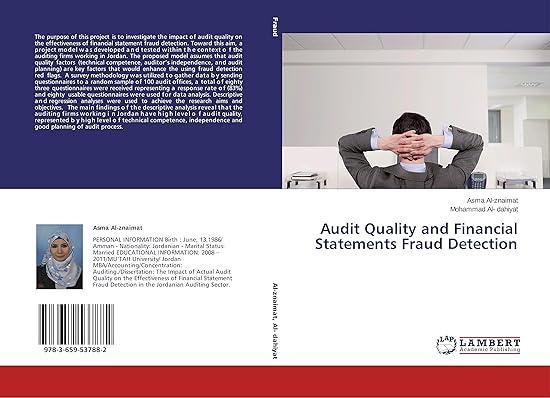Question
Burden manufactures a range of components and spare parts for the textile industry. The company employs 150 hourly-paid production workers and 90 selling, distributing and
Burden manufactures a range of components and spare parts for the textile industry. The company employs 150 hourly-paid production workers and 90 selling, distributing and administrative staff, including the three directors of the company. There are two wages clerks who deal with the weekly payroll of the hourly-paid employees. They are directly responsible to the assistant accountant.
The company uses a computerized time clock at the factory gate to record the hours worked by the production employees. Each employee has a card with a magnetic strip with his own identification code on it. This card is inserted in the computerized time clock on the arrival and departure of the workers whereupon it records the hours worked on the card. The cards are collected weekly by the wages clerks who simply insert them individually into the microcomputer, which then reads them and prepares the payroll. The production manager keeps the unused clock cards in a locked cabinet in his office.
Wages are paid one week in arrears. The wages clerks compile the payroll by means of the microcomputer system; pass the payroll to the assistant accountant who scrutinizes it before drawing the wages cheque, which is passed to one of the directors for signature. Any pay increases are negotiated locally by representatives of the employees. If any alterations are required to the standing data on the microcomputer, then the wages clerks amend the records. For example, when a wage increase has been negotiated, the rates of pay are changed by the wages clerks.
The cheque is drawn to cover net wages and the cashier makes arrangements for collecting the cash from the bank. The wages clerks then make up the wages envelopes. Whenever there is assistance required on preparing wages, the assistant accountant helps the wages clerks. The payment of wages is carried out by the production manager who returns any unclaimed wages to the wages clerks who keep them in a locked filing cabinet. Each employee is expected to collect his unclaimed wages personally.
New production employees are notified to the wages department verbally by the production manager and when employees leave a note to that effect is sent to the wages department by the production manager. All statutory deductions are paid to the appropriate authorities by the chief accountant.
You have recently been appointed the auditor of Burden for the year ended 31 December and have just started your interim audit. You are about to commence your audit evaluation and testing of the wages system.
Required:
(a) Describe the weaknesses in the present wages and salaries system, and suggest, with reasons, improvements which could be made to the system (assuming that the only controls are those set out above).
(b) Describe the appropriate audit approach to wages, based on the above.
Step by Step Solution
There are 3 Steps involved in it
Step: 1

Get Instant Access to Expert-Tailored Solutions
See step-by-step solutions with expert insights and AI powered tools for academic success
Step: 2

Step: 3

Ace Your Homework with AI
Get the answers you need in no time with our AI-driven, step-by-step assistance
Get Started


